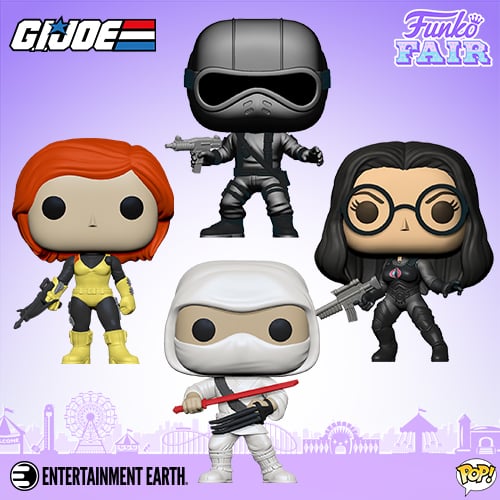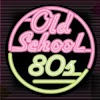When the opportunity presents itself to ask a few questions to someone who contributed to the awesomeness of the '80s, I will continue to share those answers with you right here. Again, lucky for me (and hopefully you), I do get to share a little more awesomeness with you.
 This time that awesomeness is Skip Griparis. He is a musician and a comedian, but likely best known to most from his role as Bob Uecker's radio partner in the 1989 film Major League. He was a character of few words, but the two provided some of the funniest parts of a very funny film. Find out a little about working on Major League as well as what he did before and has done since as we get on to some selections from my interview with Skip Griparis...
This time that awesomeness is Skip Griparis. He is a musician and a comedian, but likely best known to most from his role as Bob Uecker's radio partner in the 1989 film Major League. He was a character of few words, but the two provided some of the funniest parts of a very funny film. Find out a little about working on Major League as well as what he did before and has done since as we get on to some selections from my interview with Skip Griparis...Q: Please tell us a little about what you had done in your career prior to Major League.
Skip: I started my crazy career in rock bands in 1964, eventually leading to a Mercury album release in 1971 by my band, Trilogy. Great album, no promo, so it and we died. Then in 1972, I replaced my good buddy Ronnie Rice in Chicago's New Colony Six. By 1975, I was asked to play guitar and sing in the Olivia Newton-John band, which I did for four years, touring the states and the world. She was the biggest singer on the planet at that time. She was beautiful, sweet, sang like a bird - OK, I had a massive crush on her! I still can't talk to her without embarrassing myself. But she stopped touring and, by 1980, I needed a break from the music business, so I went back to school and got a speech/theater degree at Lewis University in Romeoville, Illinois. Utilizing my music background with my developing acting/comedy skills, I created an original one-man rock comic impressionist act. Damn, if I didn't headline all over the country, including stints at the Ice House in Los Angeles, Zanies Comedy Club (many times) in Chicago and Dangerfield's in New York.
Q: How did the role of "Monty the Colorman" in Major League come your way? What made you decide to audition and did you audition for that specific part? What can you tell us about the audition process and then when you found out you were cast?
Skip: I also was doing Chicago theater and auditioning for commercials, TV, movies and crappy industrial projects. I did do a few TV commercials and a number of voice-overs for radio. I was delighted to get a call to audition for a new baseball movie. I was asked to bring a ball and glove to prove I could really play (I had played Little League, Pony League and Park District softball).
Most of my audition was for a player at bat. Then they asked me to read one line as "Colorman". I read, "You can't say f----n' on the air!" They all laughed and said thanks. I said, don't you want to see me play ball? They said no. I said bye and I figured I had whiffed again. I had forgotten all about it two weeks later when I got a call from Glen, my agent at Harrise Davidson, "Skip, you got the part... Colorman!" If I didn't pee in my pants, I should have.
Q: How long did it take to film your scenes in the booth?
Skip: We filmed all of our scenes on a three-day weekend, days and evenings. It was a beautiful June in Milwaukee. Everybody was friendly. During long breaks, Bob would share hilarious baseball anecdotes.
Q: What can you tell us about Bob Uecker and your experience working with him? Have you stayed in touch with Uecker since the films?
Skip: Bob was absolutely wonderful to work with, and I would do it again in a heartbeat. I still see him occasionally at Wrigley Field, when he does the play-by-play there for the Brewers. Always cordial and funny.
Q: What were you told about your character or given as direction how to play him? How much of your character and Harry Doyle was on the page and how much was ad-libbed?
Skip: I was given almost no direction how to play Monty. I just kind of winged it. I couldn't tell if I was sucking or what, until the morning of the second day when David came up to me and said, "Hey, we watched the rushes, and you're really funny!" I guess he hadn't paid any attention to me during filming - I was both complimented AND insulted! Uecker was given a lot of liberty to ad-lib and he was hysterical. I wish I could remember all of the lines that were made up on the spot, but it was too long ago. I do remember that Bob's lines were often re-written every day and he was handed new pages right before shooting, and he had to memorize them right away. He was amazing.
Bob Uecker's Harry Doyle delivered such memorable lines as "Juuuuust a bit outside!" and "This guy threw at his own son in a father/son game." Here is one of my favorite interactions with Monty...
Harry: That's all we got, one g--damn hit?
Monty: You can't say g--damn on the air.
Harry: Don't worry, nobody is listening anyway.
Then there was another as the movie reached its climactic game...
Harry: Monty, anything to add?
Monty: Umm, no.
Harry: He's not the best colorman in the league for nothing, folks!
Q: What do you remember about the "You can't say g--damn on the air" and the "He's not the best colorman in the league for nothing" exchanges in particular?
Skip: As I added it in handwriting on my script, I believe this classic line was actually created on the spot - "Monty, anything to add? Uh, no. He's not the best colorman in the league for nothing!" And FYI, "You can't say g--damn on the air", had been cleaned up for Bob, who didn't feel comfortable saying "f----n'" (which was in the original script and my audition), at least on film!
Q: Even though you didn't necessarily have a lot of scenes directly with them, did you get to know or spend much time with any of the other cast members at all? If so, what can you tell us about any of them?
Skip: I spent a little time with Tom Berenger in the hotel lounge. He was frustrated at that time, working with an inexperienced director David Ward. They didn't really click until a bit later in the shooting. And, of course, Tom came back for Major League II, so all's well that ends well.
Q: Other than working with Bob Uecker, what are some of your best memories from making Major League?
Skip: It was all a bit heady, having my own trailer and director's chair with my name on it! And I even had a stand-in - virtually a Skip Griparis tribute artist!
Q: What were your feelings about it when the film was released in 1989? What are your feelings about Major League now 25 years later? Do people recognize you specifically from the films and/or come and quote lines to you?
Skip: It was a gas seeing the film released, and to be #1 in the country for two weeks. I thought Major League was very funny, but I could not have guessed the duration of its appeal. People do still come up to me and recite lines from the movie! They know more of my lines than I do. Some have the whole movie memorized, word for word! Can you say cult following?
Q: You returned for the sequel in 1994. When did you find out they were doing a sequel and were you onboard from the start? What can you tell us about filming the sequel? How did it differ from the original? Why were you not included in the Back to the Minors sequel?
Skip: Major League II was not as enjoyable as the first. This time we were in Baltimore in November, outside in 40 degree weather - you could see our breath, and yet we were dressed for summer! Once, after the Harry character passes out drunk, I looked over at Bob, dressed in a tank top, and his stomach muscles were spasming from the cold! Also, the director was coming down with the flu, and was really ornery. Finally, half-way through the shoot, he left the set to direct us by walkie-talkie from some remote studio! Not the best conditions. Now, Back to the Minors (a fitting title given its quality) was written, directed and produced by completely different people. Bob wasn't going to do it, but they made him a last-minute offer he couldn't refuse. I can't print here what he later thought of the production. They didn't even know anything about baseball. Let's just say I'm lucky to have not been involved!
Even though the film wasn't as great as the first one, Harry Doyle and Monty still had some funny parts in 1994's Major League II. One of my favorites is...
Harry: Dynamite drop-in, Monty. That broadcast school has really paid off.
Q: Please tell us a little about where your career has taken you since the Major League films. I am surprised that there were not more film roles after that. What are some of your proudest professional accomplishments? What else has Skip Griparis been up to more recently?
Skip: I had major health issues during the first Major League - it's amazing I did as well as I did. But my health precluded my furthering my acting career at a time when I could have cashed in on Major League's success.
50 years into my career, I'm very proud of its diversity - from rock & roller to movie actor, stand-up comic impressionist, jazz musician, and now rocker again with "Skip Grip and the Oldies Trip". And, I've got a live CD of my jazz quartet available soon on my website, SkipGriparis.com. Yep, I'm still kickin' out the jams! And, who knows, I might still dance at Chippendales! Nobody rocks a thong like I do. And, yes, I'm seriously delusional. But, thanks for asking me about my career and Major League, which became a bigger part of my life than I could have ever imagined!
I am so pleased that Skip was able to take some time to answer some questions so I could share them with you here. You can keep up with him at his official website SkipGriparis.com or his Facebook page. I want to take this occasion to again thank Skip Griparis for his contributions to '80s pop culture especially through Major League and, even more, for going back to the '80s with us here for a little while as well. He's not the best colorman in the league for nothing, folks!
Follow @OldSchool80s on Twitter for a daily dose of '80s nostalgia and read more Retro Interviews on RD80s.

 shareasale.com
shareasale.com StickerShoppe.com
StickerShoppe.com




 Elfi Santa
Elfi Santa

Follow RD80s on Social Media